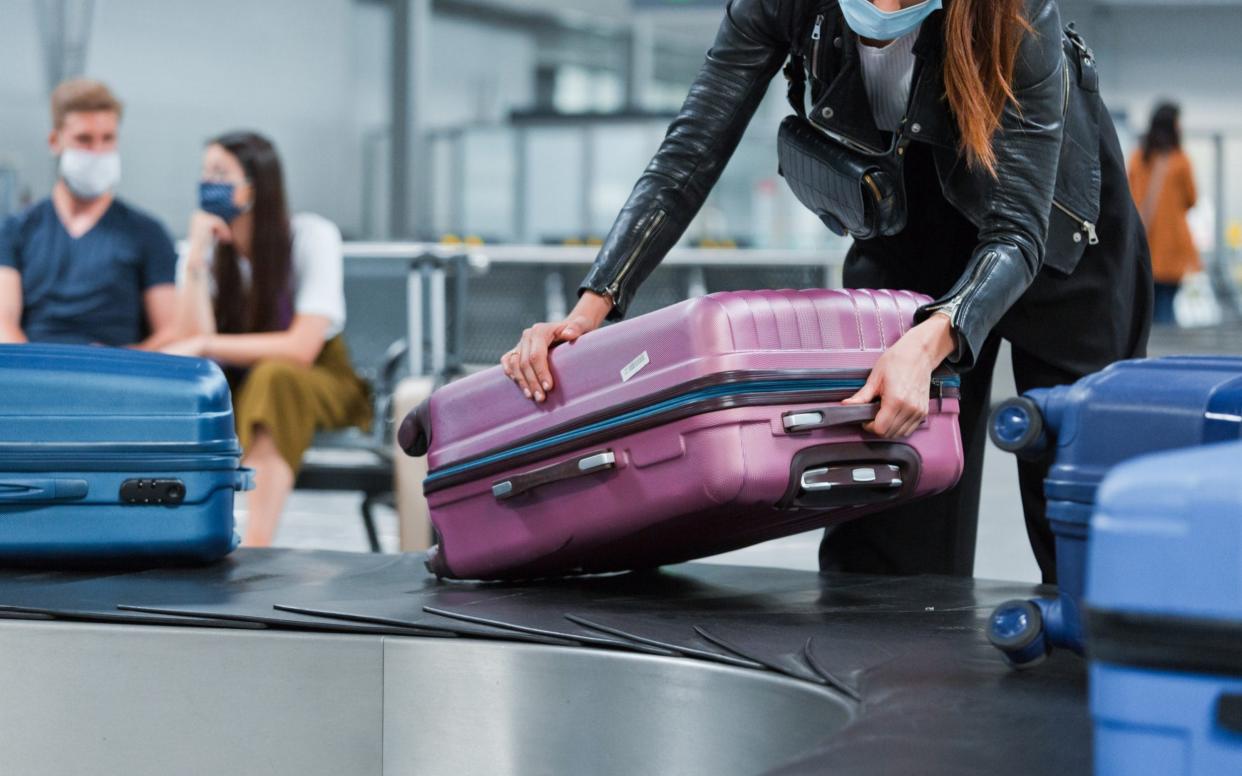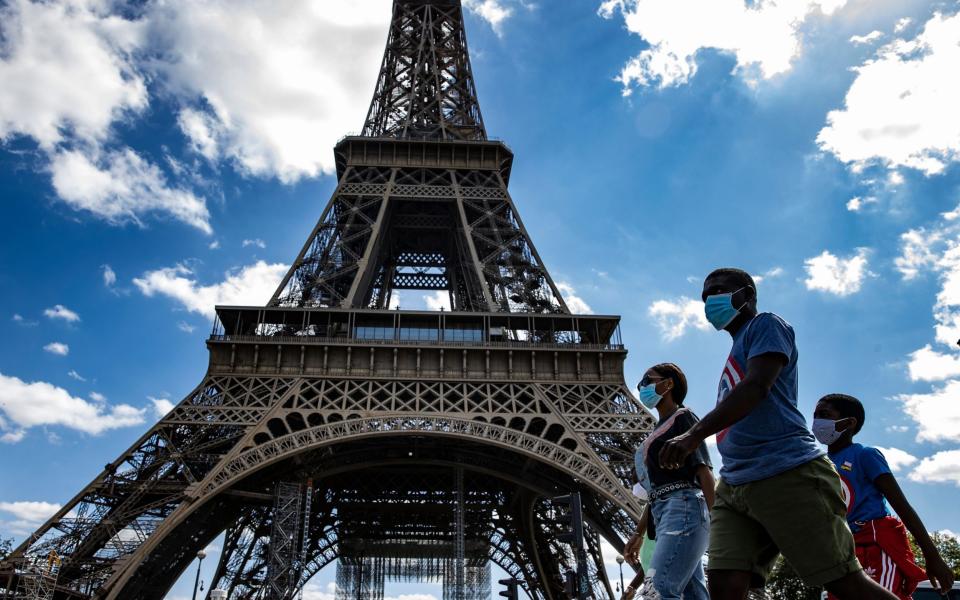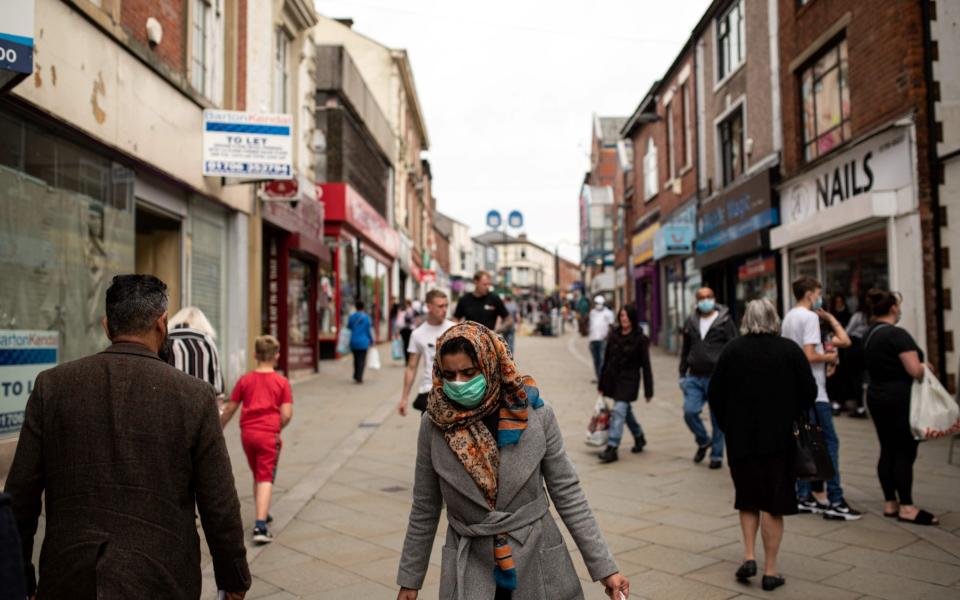Have we just lived through the weirdest summer of our lives?

Of all the seasonal transitions, the one from summer to autumn is the most poignant. ‘Summer’s lease hath all too short a date’ wrote Shakespeare, and climate change notwithstanding it remains as true now as it did then. The elision has certain, immutable markers: the Last Night of the Proms, the shadows lengthening over the Oval gasworks as the final Test of the season is played out, the mornings a little bit chillier. But this year the Proms has no audience and the final Test took place in a biosecure Southampton bubble. Only the crisper dawns after weeks of tropical nights hint at normality: but there’s been little normal about the past few months, and there may be little normal about the months to come either.
1816 was called the Year Without A Summer, the climate skewed by the effects of a volcanic explosion 12 months before. 2020 will go down in history as the same, which is ironic for a year which saw the third hottest British day on record. There were no Olympics and no Euro 2020, and if anything can bring people together it’s massive international sporting events. There was no Glastonbury (nor indeed any other festivals), no Chelsea Flower Show or Glyndebourne as we know it, no tentpole cinema releases. Whatever your tastes, there was nothing for you.

Tourism, both incoming and outgoing, was a fraction of what it usually is. I spent a day in Oxford in early August and it was deserted, with literally not a single person walking on Broad Street at lunchtime. Those who took the plunge and booked holidays abroad risked having to drop everything and race back early to avoid quarantine, and even then they got precious little sympathy from many who sneered that perhaps for one year people could do without a trip abroad.
Most of all, this was a summer lost to young people, and particularly to A-level students. Those final weeks of school are such a precious, charged and bittersweet time: the all-consuming tensions of exams followed by the release of their ending, the long days and nights pledging eternal friendship while navigating first loves, and then the anxious wait all over again for results. It’s easy for adults, removed from that stage of our lives by distance, work and responsibility, to forget how seismically important this time of life is to those experiencing it. All that was gone: no, not just gone, but then stamped on by the exam results fiasco. Teachers’ predicted grades were ignored in favour of a flawed algorithm which, in many cases, didn’t just mark pupils down but did so disproportionately to those from less privileged backgrounds.

Leah Glenday, who was not just the first person from her school in Chigwell but also the first person from the Haringey foster care system ever to be offered an Oxbridge place, was predicted A*AA. The algorithm spewed out AAB, the computer said no, and her place to read law at Cambridge was gone. It was later reinstated, but only after the most almighty fuss, and for students across the land the feeling remained that these results were something they had been given rather than earned, and that they had been treated as statistics rather than individuals.
As we head into an autumn which promises to be as uncertain as the spring and summer have been, this is one of the things against which we must guard the most. Pandemics traditionally accelerate existing social and economic trends, and coronavirus has been no different. In a world where everything is monitored and where data becomes ever larger, wider and deeper, it becomes correspondingly easier to see that world purely in terms of statistics. Death rates. Infection rates. Unemployment rates. Interest rates. Inflation rates.

In a world where inequality is one of the great scourges of the age, the gap between the haves and have-nots has been prised even further apart. Poorer people are more likely to have continued working during lockdown, whether voluntarily or otherwise: certain ethnic groups have shown themselves to be more vulnerable to the virus than others, partly through genetic and health conditions and partly because in large part they are also those who have had to go out to work, with all the associated risk of viral exposure.
And in a world where political splits have become ever more fractious and tribal, the arguments between left and right or between Remainers and Leavers have now been joined by ones about the virus. In one corner are those who think the lockdown justified and who wear masks without compunction: in the other are those who gathered in London at the weekend to protest that lockdown was a gross over-reaction and see the wearing of masks as a damaging blow to our liberty.

None of this is going to go away, not in the short term. The new normal, whatever it looks like, will continue to be very far from the old normal. Despite the government’s efforts to get Britain back to work, fewer than one-sixth of office workers in central London intend to go back to those offices on a regular basis, continuing instead to work from home. But this won’t be the flexitime utopia its adherents hope. It’s not just that a delineation between home and work is psychologically helpful, or that offices are valuable centres of social interaction and the soft exchange of information through casual corridor conversations. Companies are hierarchies, and those who make themselves visible through physical presence put themselves at an advantage for promotions, higher salaries and the best opportunities. As the old Russian proverb goes, the absent one is always wrong.
For all these reasons, it’s more important than ever that we look out for each other. In the early days of lockdown this happened across the country, with people checking in on each other, setting up rotas to keep tabs on the elderly and vulnerable, and doing shopping runs for those who couldn’t. If these strange, dislocated past few months have had any upside, that has surely been the reaffirmation and strengthening of these connections, far from the unseeing hand of a government algorithm or a corporate furlough scheme.

A few weeks ago we went down to a quiet Dorset beach with a couple of other families. Over the course of the evening, four more families we knew turned up. None of them had any idea that the others would be there, and indeed in any normal summer they wouldn’t have been: they’d have been scattered across Europe on holiday. It ended up being one of those unexpectedly magical evenings, carved entirely from chance. We had good company and a beautiful beach, and from almost anywhere in the country you don’t have to go very far for either of those.
Into the void of all those cancelled events came heady rushes of nostalgia. The BBC used their Glastonbury slot to run highlights of festivals past, and it was magic. Watching David Bowie’s iconic 2000 set was an elegiac lament to a lost genius: watching Faithless perform ‘Insomnia’ as the sun went down over Somerset in 2010 was to relive a youth of dancing, blissed-out crowds and one love.
And into the quiet of lives suspended came a restoration of nature often ignored and underappreciated. The celestial criss-crossing of contrails has almost vanished. On Desert Island Discs the other day, TV presenter Steve Backshall spoke of how vastly reduced levels of river traffic have made his corner of the Thames heaven for nesting birds.
Small things. Wonderful things. Moments that we must hold close to our hearts as the colder nights draw in. Thanks to the erratic giddiness of the past months, autumn, we are told, has been ushered in two weeks ahead of schedule. And as temperatures begin to plummet we must cherish those special times if we are not to find that soon, if not quite yet now, is the winter of our discontent.


